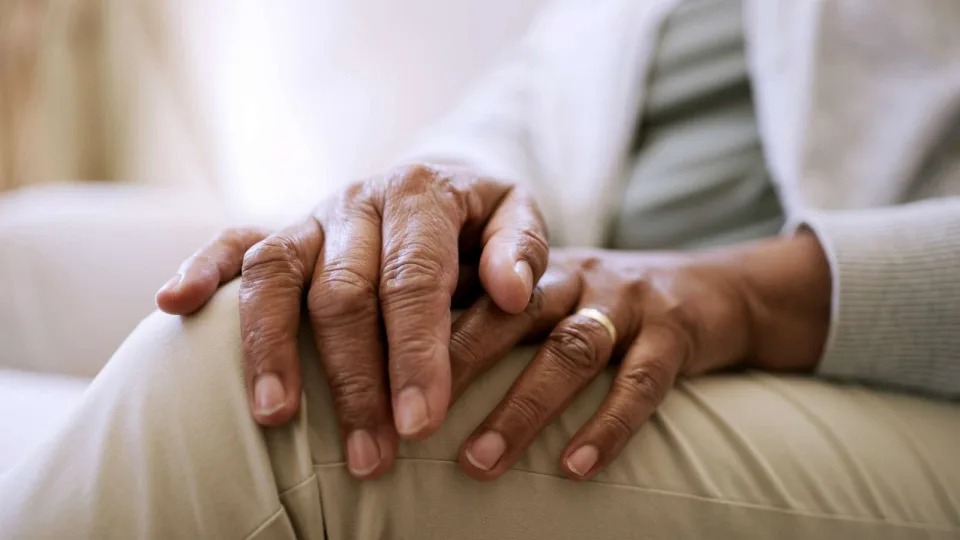Hispanic Americans are at higher risk of developing Alzheimer's disease, research shows

Image: Collected
Nearly 7 million Americans live with Alzheimer's disease, an irreversible and devastating form of dementia that gradually breaks down memory and thinking skills.
But not everyone is equally at risk. Hispanic people are 1.5 times more likely to develop Alzheimer's disease than white people, according to data from the Alzheimer's Association.
"Our America: Unforgettable" is an hour-long special produced by ABC Owned Television Stations in partnership with ABC News that takes a look at the alarming data of Alzheimer's disease through a Hispanic and Latino lens.
It's important for groups at higher risk to know the signs of Alzheimer's disease, said Christian Salazar, a research scientist at the UC Irvine Institute for Memory Impairments and Neurological Disorders.
He continued, "Or you can have individuals who have very stark changes in their personalities in how they were able to live day-to-day and remember things. That abrupt change is a clear symptom that something is wrong."
Some early signs and symptoms of Alzheimer's disease include difficulty with familiar tasks, confusion around dates or times, and worsened judgment.
The disease progresses through stages. During the early stage, people may have some memory lapses but are still able to function normally.
In the middle stage of the disease, people may experience confusion, and moodiness, and have difficulty making decisions. People in the late stage often require 24/7 care. They may lose awareness of their surroundings, have difficulty walking and swallowing, and have difficulty communicating.
There's no cure for Alzheimer's disease. But people can take some steps to reduce their risk of the disease, said Dr. Zaldy Tan, medical director of the Jona Goldrich Center for Alzheimer's at Cedars Sinai.
"Controlling diabetes and high cholesterol is important," he told ABC News. "Exercise is one of the things that I prescribe to all of my patients because exercise has been shown to reduce the risk of developing dementia."
And just because there's no cure doesn't mean there's no hope, Tan said.
"There's also no cure for diabetes, no cure for cancer, no cure for high blood pressure, no cure for heart disease -- it does not mean that there is nothing we can do about it," Tan said.
But not everyone is equally at risk. Hispanic people are 1.5 times more likely to develop Alzheimer's disease than white people, according to data from the Alzheimer's Association.
"Our America: Unforgettable" is an hour-long special produced by ABC Owned Television Stations in partnership with ABC News that takes a look at the alarming data of Alzheimer's disease through a Hispanic and Latino lens.
It's important for groups at higher risk to know the signs of Alzheimer's disease, said Christian Salazar, a research scientist at the UC Irvine Institute for Memory Impairments and Neurological Disorders.
Read More : Food insecurity's long-term health consequences
"There are older Latinos who have cultural beliefs that losing your memory is a normal part of aging. That's not the case," Salazar told ABC News. "You can occasionally forget things and that's a normal part of aging."He continued, "Or you can have individuals who have very stark changes in their personalities in how they were able to live day-to-day and remember things. That abrupt change is a clear symptom that something is wrong."
Some early signs and symptoms of Alzheimer's disease include difficulty with familiar tasks, confusion around dates or times, and worsened judgment.
The disease progresses through stages. During the early stage, people may have some memory lapses but are still able to function normally.
In the middle stage of the disease, people may experience confusion, and moodiness, and have difficulty making decisions. People in the late stage often require 24/7 care. They may lose awareness of their surroundings, have difficulty walking and swallowing, and have difficulty communicating.
There's no cure for Alzheimer's disease. But people can take some steps to reduce their risk of the disease, said Dr. Zaldy Tan, medical director of the Jona Goldrich Center for Alzheimer's at Cedars Sinai.
"Controlling diabetes and high cholesterol is important," he told ABC News. "Exercise is one of the things that I prescribe to all of my patients because exercise has been shown to reduce the risk of developing dementia."
And just because there's no cure doesn't mean there's no hope, Tan said.
"There's also no cure for diabetes, no cure for cancer, no cure for high blood pressure, no cure for heart disease -- it does not mean that there is nothing we can do about it," Tan said.
Source: https://news.yahoo.com
Tags :
Previous Story
- Blood donation policy is updated, allowing gay and...
- China’s economy may never eclipse America’s
- Airlines are adding new routes and making a...
- Driverless Automobile Tech Evolution Could Boost These ETFs
- Holland America Line introduces 150th anniversary ‘Heritage Cruises’...
- ‘Fast Furniture’ Is Cheap. And Americans Are Throwing...
- GMIS America calls for greater collaboration between energy...
- Holland America Line celebrates one year back to...